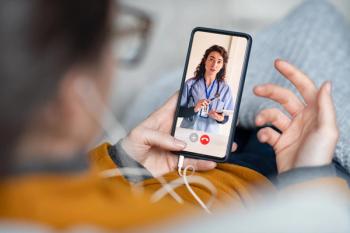
What happens to telehealth when pandemic emergency measures end?
Congress will have to take action to keep the telehealth floodgates open, so uncertainty remains.
Telehealth visits helped physicians, patients and the rest of the U.S. health care system weather the COVID-19 pandemic when much of in-person care was reduced.
But Medicare still has old-fashioned regulations on the books that restrict when and how telehealth services can be used. All those difficulties went out the window when the federal government declared a public health emergency at the beginning of the pandemic — and has since extended it multiple times.
But when the health emergency finally is allowed to expire, the telehealth rules will revert back without legislation from Congress, said Brian Scarpelli, senior global policy counsel for the Connected Health Initiative, during a session at the
Those rules are quite onerous compared to modern telehealth practices, Scarpelli said. For example, a residence is not considered a valid site of care, and a patient has to reside in a recognized provider shortage area. In addition, telehealth has to be live and on video to qualify for reimbursement.
“What sense do those rules make in this day and age?” Scarpelli said.
All of those restrictions were put aside during the health emergency, which is set to expire on April 16, according to HHS. It could still be extended, as it has been numerous times already during the pandemic. In fact, the
However, even with that extension baked in, there’s no promises that the “telehealth cliff” that many virtual care advocates are concerned about will be avoided. That’s because Congress will need to get involved.
This will depend on Congress to act,” Scarpelli said. “And you can never bank on Congress to act.”
Newsletter
Access practical, evidence-based guidance to support better care for our youngest patients. Join our email list for the latest clinical updates.








